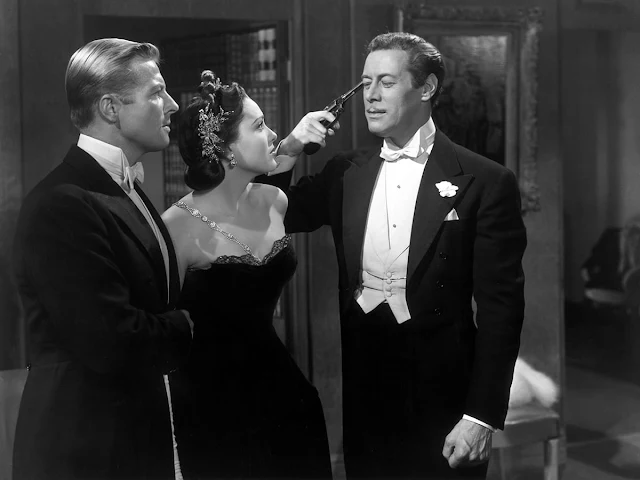 |
| Ingrid Thulin and Bibi Andersson in Brink of Life |
For all the frankness of its subject matter, Ingmar Bergman's Brink of Life is as formulaic as a Hollywood movie of the 1950s. Three women are sharing a room in the obstetrics ward of a hospital. One of them, Cecilia (Ingrid Thulin), has miscarried and is being treated for bleeding. Another, Stina (Eva Dahlbeck), is in almost the opposite condition: She has gone well past term in her pregnancy and is there hoping that labor will be induced if it doesn't occur right away. The third, Hjördis (Bibi Andersson), is only in her third month, but she has experienced some bleeding -- perhaps, we learn, because she's unwed and doesn't want the baby, so she's been trying to cause a spontaneous abortion. Cecilia is in the throes of depression, blaming herself for the miscarriage because neither she nor her cold, priggish husband, Anders (Erland Josephson), was entirely certain that they wanted a child. Again, Stina is the precise opposite: She's rapturous about having a baby, and so is her husband, Harry (Max von Sydow). Between these polarities, Hjördis is fighting with the social worker who is trying to advise her on how she can live after the baby arrives. The best advice is, of course, to go home to her parents, but since she left precisely because she doesn't get along with her mother, she strongly rejects the idea of facing the disapproval she expects to encounter from her. It's all a setup for the kind of plot resolutions you might expect: Cecilia grows stronger and chooses to face up to her disintegrating marriage and a childless future. Stina loses the baby in a prolonged and difficult labor. And Hjördis discovers that maybe her mother isn't so bad after all. There's a feeling of anticlimax about these eventualities. That the film works at all is the product of the performances of the three actresses, along with Bergman's steadily unsentimental direction, which makes the predictability of the story more tolerable than it might be in a Hollywood tearjerker. Still, I can't help feeling that the stories of what happens to Cecilia, Stina, and Hjördis after the film ends would make a more interesting movie.








